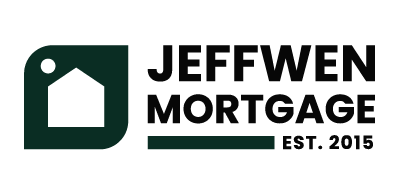What is a Bank Statement Loan?
A bank statement loan is a type of mortgage specifically designed for self-employed individuals, freelancers, or business owners who may not have traditional income documentation, such as W-2s or pay stubs, but can still demonstrate their ability to repay the loan using their bank statements. Rather than relying on tax returns or employment verification, lenders use personal or business bank statements to determine the borrower’s income and ability to afford the loan.
This type of loan is ideal for people with irregular income or those who take advantage of tax deductions that lower their taxable income but still have strong financial records to support their mortgage application.
Key Features of Bank Statement Loans
- No Need for Traditional Income Documentation: Unlike conventional loans that require pay stubs, tax returns, or W-2 forms, bank statement loans use your bank deposits to determine your income. This is especially beneficial for self-employed individuals or small business owners whose reported income may be reduced by deductions or other business expenses.
- Personal or Business Bank Statements: Lenders typically review either personal or business bank statements over a 12- to 24-month period. The deposits shown in these statements are used to calculate your qualifying income.
- Flexible Loan Terms: Bank statement loans often come with flexible loan terms, including fixed-rate and adjustable-rate options. You may also be able to choose between different loan terms (e.g., 15-year or 30-year mortgages).
- Larger Down Payments: One drawback of bank statement loans is that they may require a larger down payment compared to traditional loans, usually ranging from a minimum of 10%, depending on the lender and your creditworthiness.
- Higher Interest Rates: Because bank statement loans are considered riskier by lenders, they often come with slightly higher interest rates than conventional loans. However, many borrowers find that the flexibility of income verification makes up for the higher rates.
- Credit Score Requirements: While bank statement loans are designed for individuals with non-traditional income sources, you will still need to meet certain credit score requirements. Typically, a credit score of 680 or higher is required, though some lenders may accept lower scores with a larger down payment.
Benefits of a Bank Statement Loan
- Ideal for Self-Employed or Freelancers: Bank statement loans are a perfect solution for those with non-traditional income who might not qualify for a conventional loan. Business owners, freelancers, and gig workers often struggle to prove their income, making this loan type a great alternative.
- More Accurate Reflection of Income: Since the loan qualification process is based on bank deposits, it reflects the true income potential of the borrower, regardless of tax write-offs or deductions. Deposits are confirmed to be business related, and an expense ratio is calculated to determine qualifying income for a home loan. The expense ratio sometimes can be minimized with confirmation from a CPA.
- No Need for Complex Tax Returns: Borrowers can avoid the hassle of providing multiple years of tax returns, which might not show an accurate reflection of their financial situation, especially for those who take advantage of tax deductions.
- Flexible Qualification Criteria: Some lenders may be more flexible when it comes to approving a bank statement loan, especially if your credit score or down payment amount is strong.
Who is Eligible for a Bank Statement Loan?
Bank statement loans are generally geared toward:
- Self-Employed Individuals: If you own your own business, are a freelancer, or work in the gig economy, you can benefit from using your bank statements to prove income rather than traditional pay stubs or tax returns.
- Business Owners: Business owners who reinvest a lot of their earnings back into their business, reducing their reported income, can use this type of loan to demonstrate their actual cash flow through their business bank statements.
- Individuals with Irregular Income: If your income fluctuates seasonally or from month to month, a bank statement loan provides flexibility by considering your overall cash deposits over a period of time.
How to Apply for a Bank Statement Loan
- Choose the Right Lender: Not all lenders offer bank statement loans, so it’s important to find a lender who specializes in this type of mortgage.
- Gather Your Bank Statements: Typically, lenders will ask for 12 to 24 months of personal or business bank statements. Be prepared to provide these documents for the loan application process.
- Submit Required Documents: In addition to your bank statements, you may need to submit other documents, such as a business license (if applicable), profit and loss statements, and other financial documents to help the lender assess your financial situation.
- Approval and Loan Terms: Once the lender reviews your financial documents, they will offer loan terms based on your income, credit score, and the amount of your down payment.
Conclusion
A bank statement loan is a great option for self-employed individuals or those with non-traditional income who may not qualify for a conventional mortgage. By using personal or business bank statements instead of tax returns, borrowers can demonstrate their ability to repay the loan. Although these loans often come with higher down payments and interest rates, they provide flexibility and opportunity for individuals with irregular or fluctuating income to secure a mortgage and purchase a home.trate their ability to repay the loan. Although these loans often come with higher down payments and interest rates, they provide flexibility and opportunity for individuals with irregular or fluctuating income to secure a mortgage and purchase a home.
